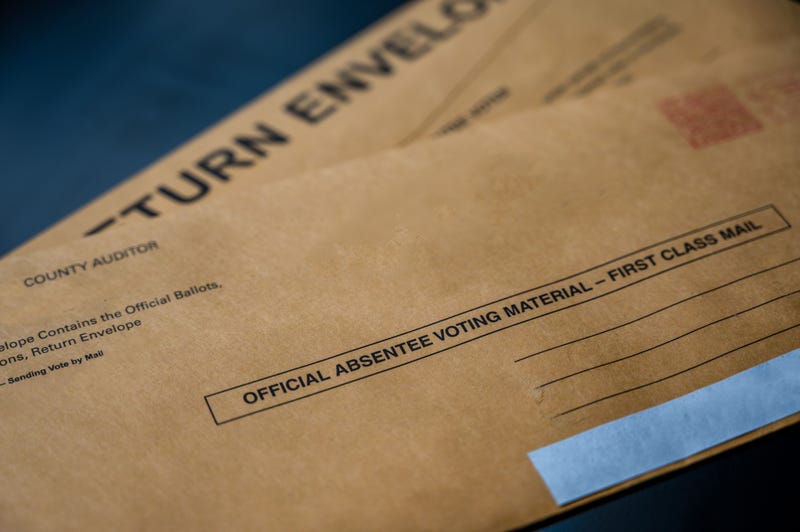
Sunday, News Talk 830 WCCO political analyst Blois Olson led a roundtable discussion on voting in Minnesota, and voting security ahead of the November 3rd Election day. The forum was sponsored by AARP.
Early voting has already started across the state and country, with record numbers of people choosing to vote absentee and vote by mail. Election security is as important in 2020 as any other issue facing voters. Blois and his guest dove into those issues, and talked about precautions advocacy groups along with the state and federal government are taking to protect those votes.
In part one, he is joined by AARP Minnesota Executive Director Will Phillips.
“Our purpose is to empower people to choose how they live as they age. We are non-partisan and represent people all over the ideological spectrum,” Phillips told WCCO. “We don’t endorse candidates, we don’t give money to candidates and we don’t tell people who to vote for.”
Phillips also said he is seeing many unifying issues this year. “They’re not going to be a surprise. They’re social security, and Medicare. They continue to be unifying issues for voters. In the midst of this year, with a pandemic, and with a lot of uncertainty when it comes to health and economic status, those issues are more important than ever.”
Part two, we talk to David McKinney, staff attorney with the ACLU Minnesota and WC Jordan, the President of the NAACP Minnesota/Dakotas.
McKinney talked about the ACLU and their involvement in Minnesota. “The ACLU is looking for ways to protect and expand the vote in Minnesota as it pertains of people of color.”
WC Jordan and the NAACP told Blois their mission is to make sure people know about their rights, and their rights to vote.
“We believe your vote is your voice,” Jordan tells WCCO. “We need to mobilize millions to ensure the highest turnout ever. We know if people of color, especially black voters, voted at the same rate as white voters have, we’d have a progressive majority. However, black voters are skeptical of political establishment. We are often unhappy with candidate choices. And of course, you’ll find many of us frustrated with structural and institutional racism, slow job growth, no wage growth, the rising cost of health care, the rising cost of college, and the rising cost of housing. And we’re disturbed by police violence. We can address many of these issues with electing the right individuals, and passing the right legislation.”
Part three includes a discussion with Secretary of State Steve Simon and FBI Supervisory Agent Michael Melcher about our Election security in Minnesota.
“There are a lot of moving parts in putting on any Election,” Simon told Blois. “It requires partnerships, it requires teammates. We work closely with counties and cities, and no question, the pandemic has thrown us all in life a curveball. And Democracy is no different.
“Here are some of the things I want to flag for people. We have about 3,000 polling places in Minnesota and about 3 million people expected to vote in Minnesota. That’s 1,000 per polling place on average. From a public health standpoint, it’s a good idea if you can get that number down. It’s not to say voting in a polling place is some sort of death trap. Of course not. But if you can get that number down to 800, or 700, or 600, that’s a good thing, it’s a win-win. So one of the things we’re asking folks to do, is consider voting from home this year. Almost a million people in Minnesota have already done that. We’re on pace to be about 1.2 million. That would be a third of the electorate which would shatter all records.”
Agent Melcher of the FBI told WCCO, “Just as every Election year, the FBI is involved and keenly aware of some of the threats that could affect Elections. We started this process back in October of 2019, to really prepare and engage with a comprehensive strategy with our federal partners DHS and other agencies, and at the state level with offices of the secretary of states.”
You can listen to the entire program with the player below.

